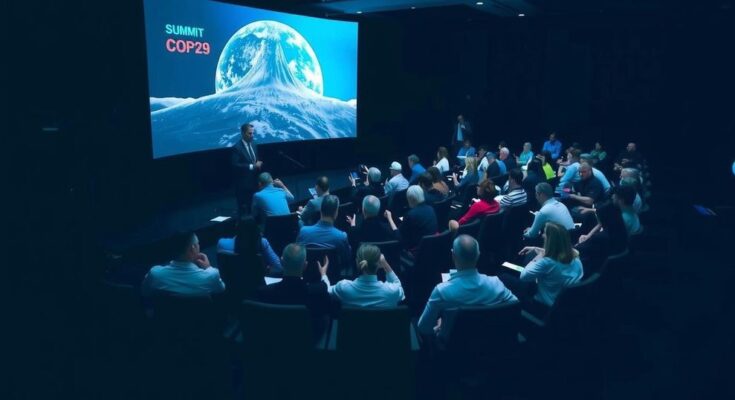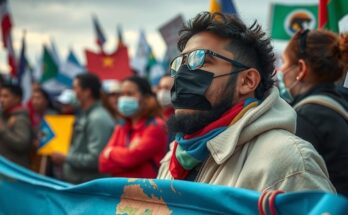At COP29, wealthy nations improved their climate finance offer to $300 billion following pushback from developing nations. As discussions continued well into the extra day, key figures like Ed Miliband and John Podesta emphasized the need for a workable compromise amidst ongoing tensions regarding fossil fuel commitments.
At the COP29 climate summit in Baku, negotiators extended discussions into an extra day, attempting to finalize a financial agreement aimed at supporting developing nations amid escalating climate crises. Wealthy nations increased their climate finance proposal from $250 billion to $300 billion per year by 2035. This adjustment came in response to discontent expressed by developing countries, which emphasized that previous offers were insufficient given the current environmental challenges. British Energy Secretary Ed Miliband and US climate envoy John Podesta underscored the ongoing negotiations while acknowledging the complexities involved as countries sought a mutually agreeable outcome. The situation remains precarious, with notable opposition to aspects of the climate deal, particularly regarding fossil fuel use.
The COP29 summit has become a significant focal point for climate finance discussions, particularly concerning the differing expectations and needs of wealthier and developing nations. As global temperatures rise, with 2023 set to be the hottest year on record, developing countries have increasingly voiced the need for substantial financial backing to combat climate-induced disasters. The discussions in Baku represent an attempt by wealthier nations—including the European Union, United States, and Japan—to address these needs while balancing internal political pressures and commitments towards reducing reliance on fossil fuels. The ongoing negotiations reflect broader tensions within international climate agreements, particularly regarding the obligations of developed versus developing countries in addressing climate change.
The negotiations at COP29 exemplify the contentious nature of international climate finance, with wealthy nations raising their offer to $300 billion in response to pressure from developing nations. Despite this increase, doubts remain about whether the proposals will meet the expectations of all parties involved. The urgency to address climate change grows, necessitating a collaborative approach that adequately finances the needs of developing nations while navigating the geopolitical landscape surrounding fossil fuel dependency.
Original Source: www.wionews.com




